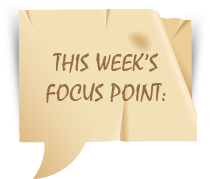Taken from lessons in history and life experiences, Niccolò Machiavelli wrote these words in The Prince, published over 550 years ago. The message is clear: the end justifies the means. These words might seem harsh, but they are not surprising. They reveal the tension that can exist in business between profit and people. Is cheating to achieve favorable results part of doing business? Should managers exploit others to achieve goals? These are not uncommon leadership dilemmas. And are situations that your company or you might be navigating. The way forward is obvious for some leaders. However, the best way forward is more complex for those with Machiavellian personality tendencies. The best place to start is by weighing the good and bad of Machiavellianism in the workplace.
The good and bad of Machiavellianism in the workplace
Machiavellianism refers to a manipulative personality trait. The personality is cunning and calculating, believing that the end justifies the means, regardless of how ruthless or moral.
Psychologists Christie and Geis studied the thought processes and actions behind individuals who manipulated others and were the first to define this personality trait as Machiavellianism. Their construct was based on personality traits displayed in the characters of Machiavelli’s literary work The Prince.
In this book, Niccolò Machiavelli described how leaders must manipulate and use power through any means necessary to achieve their goals. He presented that people cannot be trusted to do what is needed because they typically lack the experience and motivation or have biases and prejudice toward doing what is needed.
Here is a short video about What “Machiavellian” really means.
Despite the negative connotations of Machiavellian leadership, sometimes its admired, and the presence of this personality trait is found in all kinds of businesses and at all levels.
Interestingly, research into Machiavellianism leadership suggests both highly damaging implications along with some surprisingly positive outcomes for individuals and entire organizations:
The Good: Able to retain social control during difficult and chaotic situations, strategic foresight and planning, lower operating costs, high task orientation, not impulsive, gets work done by others, able to be competitive and cooperative.
The Bad: Unethical behavior, moral ambiguity, lying, revenge, threats, fraud, cheating, emotional abuse, lack of trust in others, excessive politics, theft, and paying for kickbacks.
Although research reveals some good business outcomes of Machiavellian leadership, an overwhelming number of studies demonstrate this kind of manipulative leadership hurts leadership performance. The impacts of lower-quality leader-follower relationships negatively influence performance, company culture, and results.
Do you have Machiavellian tendencies?
Fortunately, extreme levels of Machiavellianism are rare in the workplace. However, we all likely have some degree of Machiavellianism in our personalities.
The Mach-IV is a 20-question inventory that assesses your Machiavellianism tendencies. This site provides your Machiavellian score and a graph showing how you compare to others taking the assessment.
The higher your score on the Mach-IV, the more Machiavellianism. If you score 60 out of 100 or higher on the MACH-IV, you are considered a “high-Mach.” If you score below 60 out of 100, you are considered a “low-mach.”
High Mach tendencies: Business goal-oriented and calculated when interacting with others. Taken to the extreme, they are highly focused on winning and willing to use any and all means possible.
Low Mach tendencies: Believe everyone has a good and bad side. They tend to be more people-oriented and empathic in their interaction with others. Taken to the extreme, “low-Machs” can be passive, highly agreeable, and socially inept.
What do you do when you find Machiavellianism in the workplace?
Can you change your personality? Or is it true that Yoda told Luke that if you start down the dark path, it will forever dominate your destiny?
Luckily, there is hope. The Big Five personality traits serve as the building blocks of personality: openness, conscientiousness, extraversion, agreeableness, and neuroticism. Research into these personality traits suggests it is possible to change them through persistent interventions.
There is no single right way to change personality. Behaviors constantly evolve from situation to situation and moment to moment. The following are six proven countermeasures for Machiavellian behaviors in the workplace.
Machiavellian Countermeasure #1: Executive Assessments
The higher you move within an organization, the less objective the feedback you tend to receive; however, it becomes more critical personally and professionally. Executive assessments can provide deep insights into areas that, with attention, lead to enhanced potential. When selecting an assessment, using a qualified executive coach to help interpret and apply the learnings is crucial.
Machiavellian Countermeasure #2: Executive Coaching
There are many benefits of executive coaching. 80% of people who receive coaching report increased self-confidence. Over 70% benefit from improved work performance, relationships, and more effective communication skills. 86% of companies report recouping their investment in coaching and more.
Machiavellian Countermeasure #3: Leadership Style
Research in organizational behavior has illuminated the importance of ethical leadership in addressing and mitigating undesirable behaviors often associated with Machiavellianism. Ethical leadership, as a concept, encompasses a wide array of principles and values that guide individuals in making decisions that are not only morally sound but also beneficial for the greater good. It involves considerations of right and wrong and a sense of moral duty and obligation towards others.
One particular leadership style that has gained attention for its ethical underpinnings is Servant Leadership. This approach emphasizes influence over positional power, focusing on the well-being and growth of others rather than asserting authority through hierarchy. By prioritizing the needs of their followers and empowering them to reach their full potential, servant leaders create a positive and nurturing work environment that fosters trust, collaboration, and innovation.
Organizations that embrace a servant leadership style stand to reap numerous benefits. Leaders can inspire greater employee engagement, loyalty, and productivity by cultivating a culture of empathy, humility, and service. Furthermore, emphasizing ethical decision-making and social responsibility can enhance the organization’s reputation, increasing stakeholder trust and support.
Machiavellian Countermeasure #4: Reward and Recognition Systems
Tightly aligning your company’s reward and recognition systems with desired behaviors is crucial in fostering a positive work environment. When incentives are directly linked to the behaviors and values the organization wishes to promote, employees are more likely to be motivated to align their actions with these expectations. This enhances individual performance and cultivates a sense of unity and collaboration within the team, as everyone works towards common goals and shared rewards.
Machiavellian Countermeasure #5: Training and Development
Training and development play a crucial role in honing the skills and abilities of individuals across various personality types. Research indicates that providing targeted development opportunities during significant career transitions can significantly impact individuals with Machiavellian personality traits.
By investing in tailored programs that focus on shaping work expectations and behaviors, organizations can effectively steer these individuals toward more constructive and beneficial outcomes. Such initiatives not only enhance individual performance but also contribute to a positive organizational culture, ultimately leading to reduced risks of potential errors and financial losses.
Machiavellian Countermeasure #6: Therapy
A “high-Mach” personality can present unique challenges in various aspects of life, including relationships, work environments, and personal well-being. Individuals with Machiavellian traits often exhibit manipulation, deceit, and a lack of empathy. These behaviors can lead to difficulties in forming and maintaining healthy relationships and challenges in navigating social interactions effectively.
Seeking support from a mental health professional can be instrumental in developing coping mechanisms to manage these traits and their impact on daily life. Therapy can provide individuals with the tools and strategies needed to address underlying issues, improve self-awareness, and cultivate healthier ways of relating to others.
Some therapeutic approaches that may benefit individuals with Machiavellian personality traits include cognitive-behavioral therapy (CBT), which can help identify and change negative thought patterns and behaviors. Additionally, dialectical behavior therapy (DBT) may be useful in developing skills for emotional regulation and interpersonal effectiveness.
By working with a mental health professional, individuals with high-Mach personalities can gain insight into their behaviors, learn how to navigate social situations more effectively and cultivate healthier relationships based on trust, honesty, and empathy. Seeking help is a proactive step towards personal growth and well-being for those grappling with the challenges associated with Machiavellian traits.
So, what is your real leadership challenge?
References:
Christie, R., & Geis, F. (1970). Studies in Machiavellianism. Academic Press.
Doolittle, J. (2023). Life-Changing Leadership Habits: 10 Proven Principles That Will Elevate People, Profit, and Purpose. Organizational Talent Consulting.
Kumar, D. (2019). Good, bad, ugly: Exploring the Machiavellian power dynamics of leadership in medical education. Journal of advances in medical education & professionalism, 7(1), 42–46.
Page, N., Bergner, S., & Wills, S. (2017). Who empathizes with Machiavellian or Narcissistic leaders? Harvard Business Review.
Rehman, U., & Shahnawaz, M. (2021). Machiavellianism and task-orientated leadership: the moderating effect of job autonomy. Leadersh Educ Personal Interdiscip J 3, 79–85.
Van Dierendonck, D., & Patterson, K. (2015). Compassionate love as a cornerstone of servant leadership: An integration of previous theorizing and research. Journal of Business Ethics, 128(1), 119-131.



